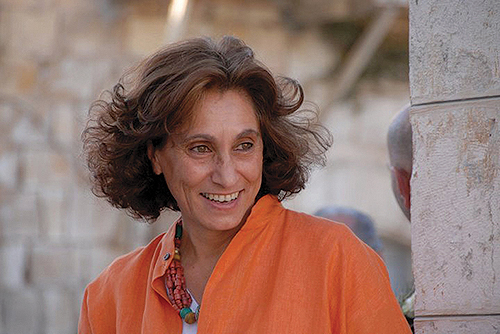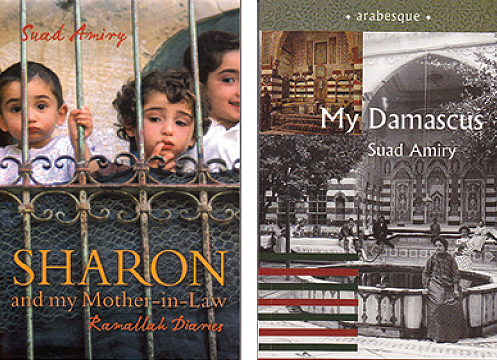Suad Amiry, an architect, writer, and performer, jokingly says: “My life seems to be a series of ten-year itches; major shifts take place in my interests, my profession, my work, and even the places where I live.” Born to a Damascene mother and a Palestinian father from Jaffa, Amiry grew up between Amman, Damascus, Beirut, and Cairo. She studied architecture at the American University of Beirut, obtained an MA in urban planning from the University of Michigan, and received a PhD from the University of Edinburgh, specializing in Palestinian village architecture.
In 1981, Amiry moved from Amman to Ramallah. She recalls: “My mother thought I was crazy, and she was probably right. I knew no one in Palestine. The intended three-month visit has so far lasted thirty-six years. I fell in love with the place and with Salim.” As a result, Amiry moved from the University of Jordan to the department of architecture at Birzeit University.
In 1991, Amiry founded the RIWAQ Centre for Architectural Conservation, which has won many international awards, including the Prince Claus Award, the Curry Stone Design Prize, and the Aga Khan Award for Architecture. Also in 1991, Amiry joined the Palestinian Delegation to the Peace Talks. While other women were members of the delegation, Amiry was the only woman who actually negotiated. In addition, she headed the Land Committee.
In 2001, Amiry published the acclaimed book , which won the prestigious Italian literary prize Premio Viareggio. She explains: “With each prolonged curfew imposed on us by Israel, a new idea came to my mind. While the idea of RIWAQ was born under the prolonged curfew of the first Gulf War in 1991, I became a writer during the 42-day curfew imposed on us in 2001. Thanks to Ariel Sharon, whose army occupied my city, and to my mother-in-law, Um Salim, who occupied my house, I became a writer.” Amiry furthermore authored numerous architectural and nonfiction books.
In 2011, Amiry held her world-acclaimed TEDxRamallah talk, “My Work, My Hobby,” during which the public learned that she was passing on her “dictatorship of RIWAQ” (as she says) to a younger generation. Amiry, who now lives between New York City and Ramallah, jokingly says, “I became an architect at age 25, a writer at 50, a performer at 65, but the future is still ahead. Perhaps I will be a philosopher if I live to be 100, like my grandfather.”



